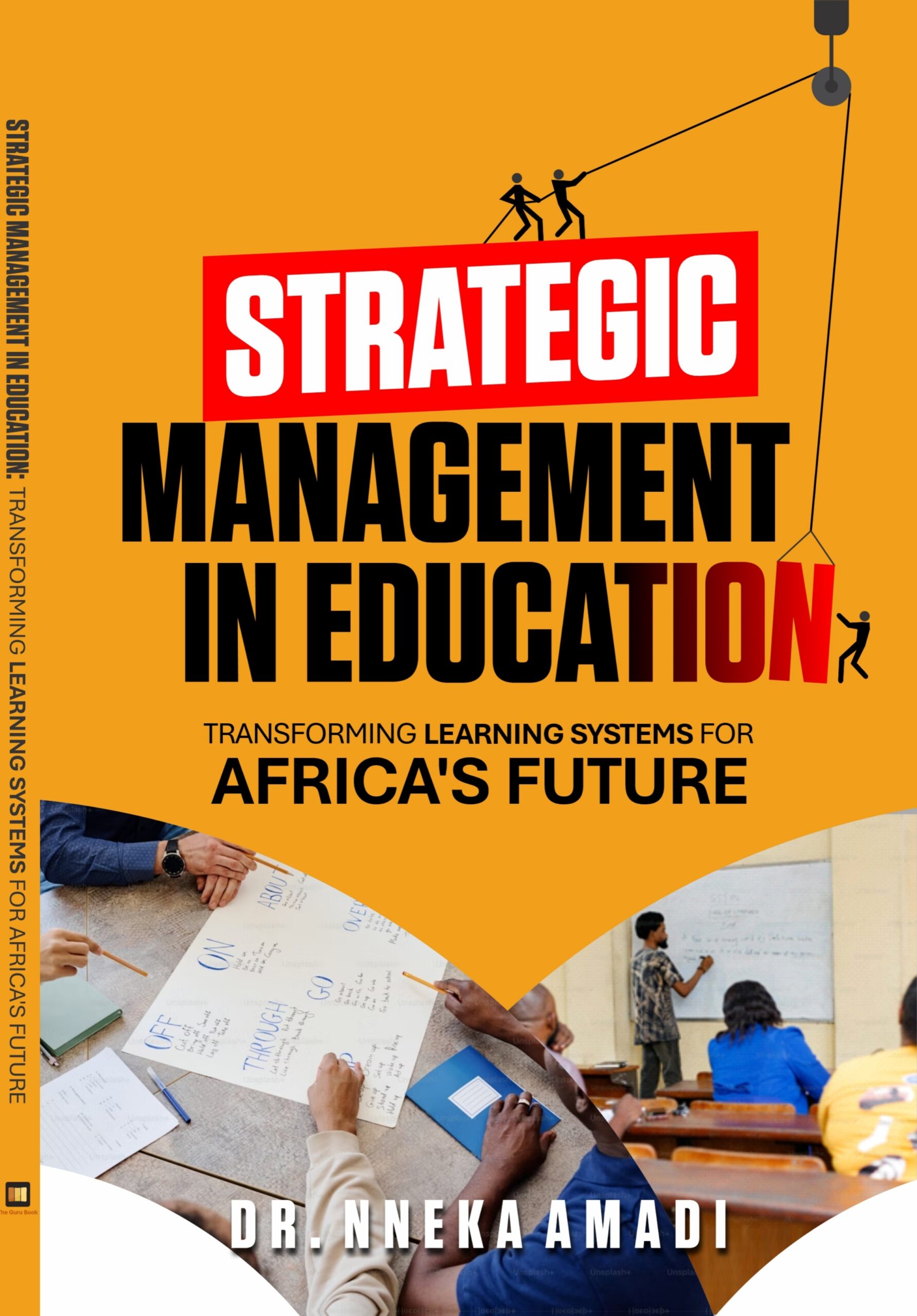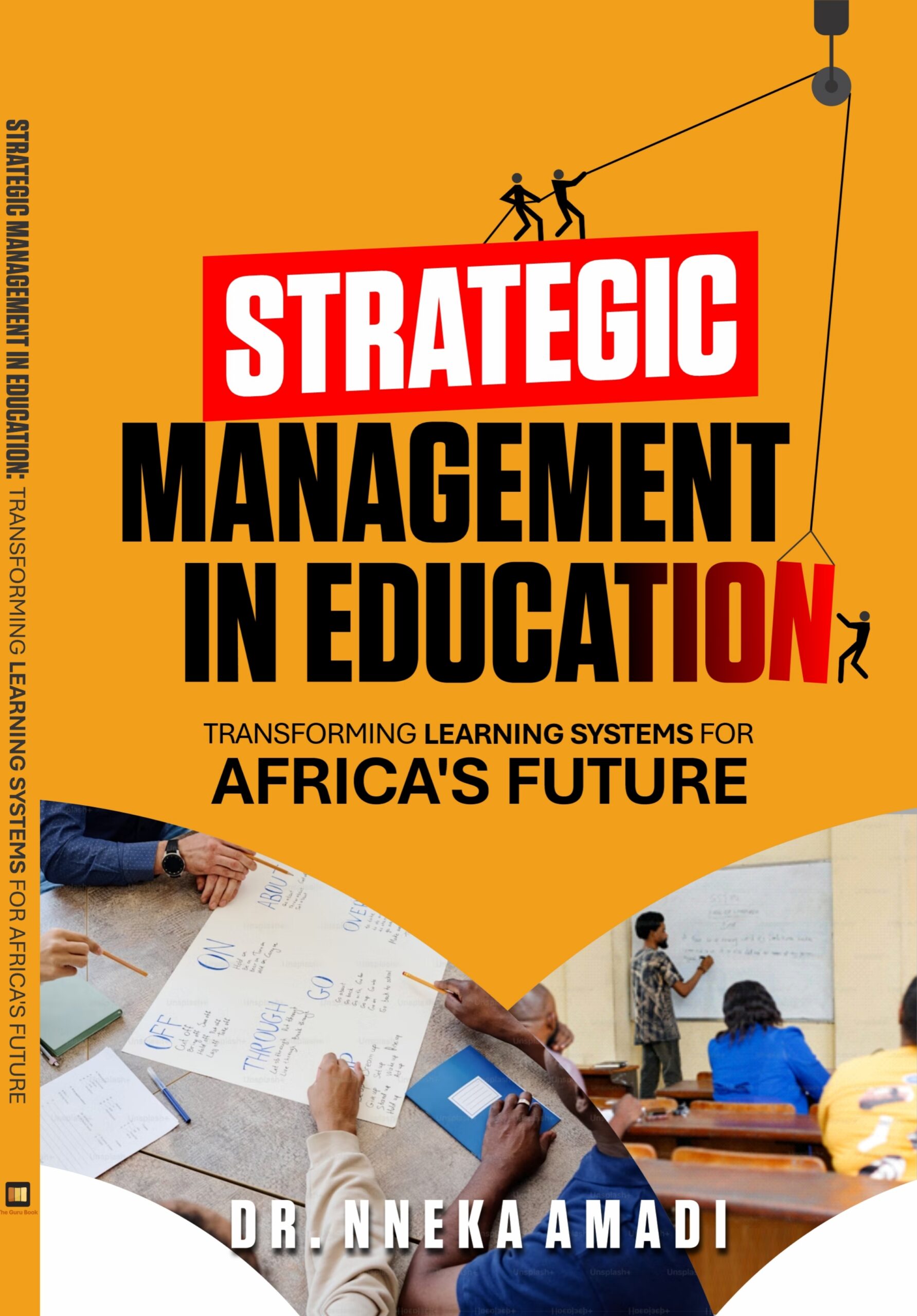Book Overview
This book is a comprehensive roadmap for reimagining education in Africa through strategic management, visionary leadership, and
sustainable reforms. It explores the critical components needed to transform learning systems into engines of social progress, economic growth, and innovation while addressing the continent’s unique challenges and opportunities.
Beginning with Chapter 1, the book introduces the principles of strategic management in education, emphasizing why a deliberate and forward-thinking approach is essential for Africa’s future. It outlines the systemic issues that continue to hinder educational progress—such as limited resources, outdated curricula, poor infrastructure, and teacher shortages—while setting out a bold vision for equitable and transformative education systems.
Building on this foundation, Chapters 2 and 3 focus on strategic planning and governance. They highlight the importance of strong
leadership, inclusive policy development, and clear governance structures to ensure effective implementation of reforms. These
chapters underscore that impactful education reform requires not only vision but also robust systems of accountability, transparency, and stakeholder participation. The book then addresses the operational pillars of transformation.
Chapters 4 and 5 discuss capacity building and inclusive education, providing practical strategies to strengthen institutional systems while ensuring equitable access for all learners, including marginalized groups. Chapter 6 emphasizes school-level innovation and the role of effective leadership in driving localized change.
A major theme of the book is the modernization of learning content and teaching practices. Chapter 7 explores curriculum innovation to make education relevant to 21st-century skills, while Chapter 8 focuses on teacher training and professional development as the
backbone of educational quality. Chapter 9 expands this discussion by examining digital transformation, highlighting the potential of
technology to close access gaps, personalize learning, and prepare students for future workforces. Recognizing that reforms are only as strong as their financial foundations.
Chapter 11 examines sustainable financing strategies and resource allocation, while Chapter 12 stresses the importance of
monitoring, evaluation, and impact assessment to ensure reforms lead to measurable improvements and lasting impact.
Throughout all chapters, the book integrates practical recommendations, real-world examples, and actionable strategies for
policymakers, educators, and development partners. It emphasizes the need for equity, sustainability, and innovation, showing how Africa can leverage its growing youth population and technological opportunities to build future-ready education systems.
This book offers hands-on advice for putting policies into practice. By addressing leadership, financing, technology, teacher empowerment, and evidence-based evaluation, it equips readers with the knowledge and tools to build resilient, inclusive, and dynamic education systems that can drive Africa toward a prosperous future.









Reviews
There are no reviews yet.